Exclusive interviews with four international bestselling authors
Authors’ words, like genies, trapped within the pages of their books lay dormant until we open them, releasing the glorious sagas that reside in their sentences.“
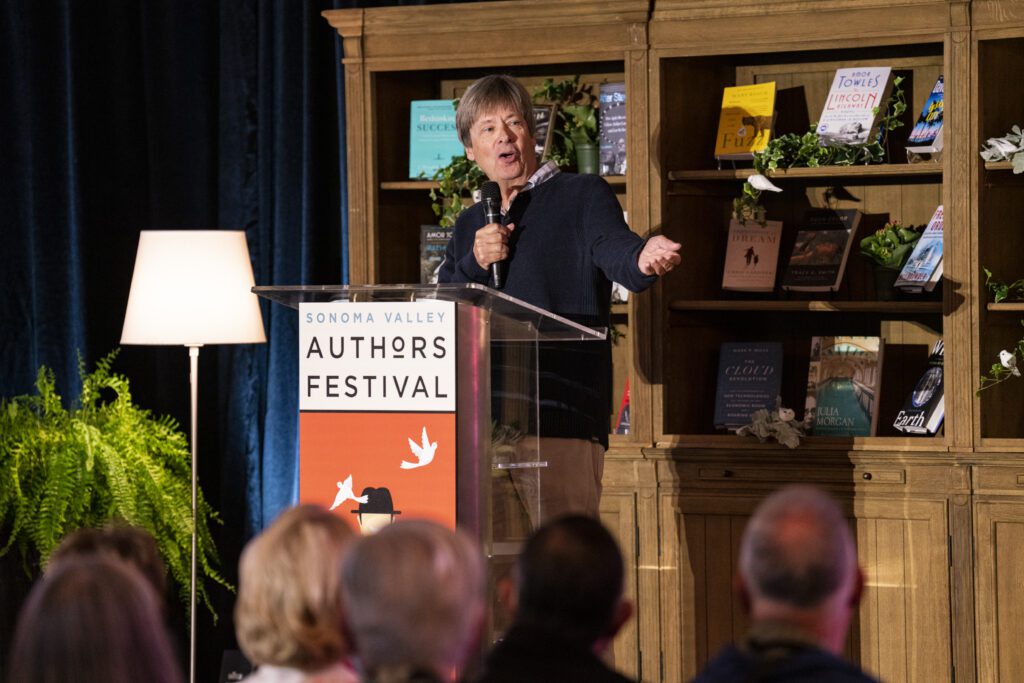
Authors invent alternative realities. They have the incredible ability to make the written word create fantastic, mysterious, tragic, and humorous tales that sweep us off to other worlds. They help us find hidden truths and sometimes let us get lost in the fantasies they create. We become attached to their fictitious characters as if we know these people. Who hasn’t walked past Tiffany’s and thought about Holly Golightly or wanted to throw a party as extravagant as Jay Gatsby? The best part is that we get to enjoy these adventures, love stories, mysteries, and historical sagas as often as we want simply by picking up a book and reading.
April in Sonoma is splendid, it is also when the Sonoma Valley Authors Festival takes place at the Sonoma Mission Inn. For one spectacular weekend, some of the world’s most beloved authors gather and share their artistry.
I had the rare opportunity to meet with four bestselling authors who are attending the Sonoma Valley Authors Festival. Each author gave me a glimpse into their fascinating lives and shared their true tales with creativity, humor, and passion. I must admit, at times I was in awe and a bit overwhelmed with the task of writing about them, after all, what words do justice to the individuals who have shaped our understanding of the world and given us stories that inspire?
ISABEL ALLENDE
Grace, Strength, and Wisdom Personified
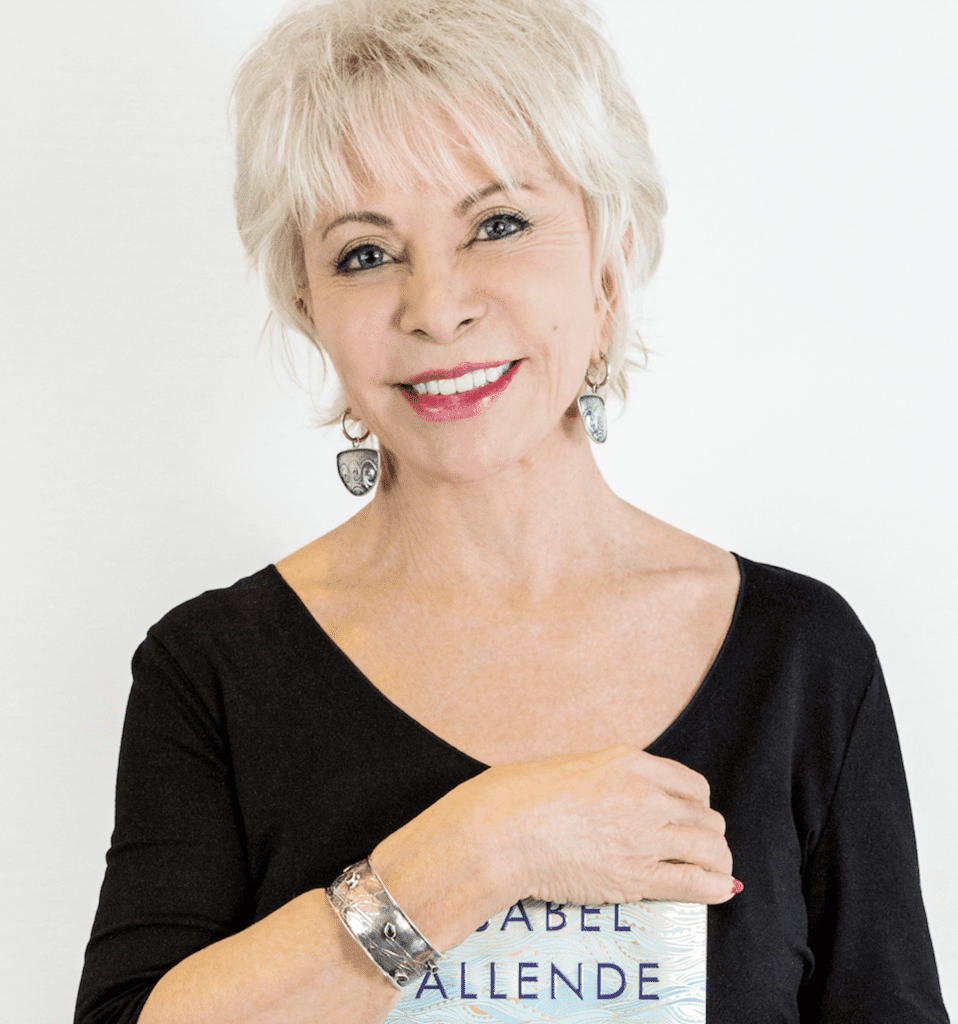
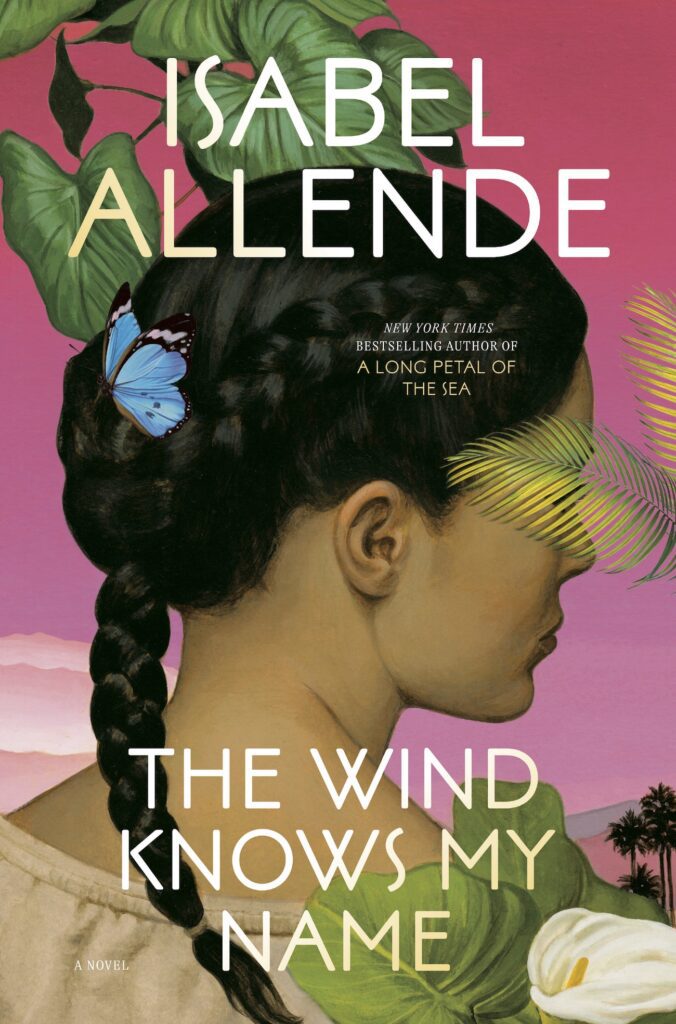
Since 1982, Isabel Allende has set the literary world ablaze with her tomes of triumph and tribulation. Her revolutionary words resonate throughout 27 books written and over 77 million copies sold. Speaking with her felt like attending a political rally with a steadfast sage whose books pages capture her life story and passions. Her legacy as a writer is profound. She was inducted into the American Academy of Arts and Letters in 2016, and received Chile’s National Literature Prize in 2010. In addition, President Barack Obama awarded her the 2014 Presidential Medal of Freedom.
Allende’s writing weaves in subtle hints of myth and her profound life story. Her family’s deep political involvement comes to light in her work, and even today, she holds strong views on immigration and women’s rights. In 1996, she created The Isabel Allende Foundation to pay homage to her beloved daughter, Paula, who passed in 1992.
“During her short life, Paula volunteered in poor communities in Venezuela and Spain, offering her time, dedication, and skills as an educator and psychologist. She cared deeply for others. When in doubt, her motto was: What is the most generous thing to do? Based on her ideals of service and compassion, my foundation was created to continue Paula’s work.”
I asked Allende how she could write a bestselling novel every few years. She said she keeps a rigorous writing schedule. She starts all her books on January 8 and writes every day except Sunday. “I want to spend some time with my husband. I would write every day if I didn’t have a husband, because this is my life.”
Allende rises at 5:30 or 6:00 in the morning because she feels that days are too short. She is not one to linger in pajamas. Instead, she has her cup of coffee and is ready for the day. She trains daily from 9 to 10, then she goes to the office to write. She shares, “I have a private place. I love it. I love the silence, the solitude, the time. It’s wonderful.”
At the Sonoma Valley Authors Festival, she is considered the grande dame of the event. “I love it. By the way, it is the only festival I attend. I have not been traveling for work for three or four years now. I do a few fundraisers for particular causes if it does not involve traveling, and I go to the Sonoma festival. It’s a happy event that is not very big. It’s organized in such a way that you can listen to almost every speaker. I also get to learn about and meet other authors I know of, but have not been able to listen to in person.”
She praised the festival: “I have read Billy Collins’ poetry. But when you listen to him, he’s very funny. On the other hand, Dave Barry, whom you think of as an amusing person, can be really, very deep. So, you get to see the different personalities of the writers beyond just reading their books. Jeffrey Brown and I have a chat and don’t prepare anything. We don’t even know what we’re going to talk about. We know each other so well that we talk as if sitting in the kitchen. I love it. It engages the audience very much because it’s not a planned interrogation. There is time for the audience to ask questions, there is dialogue, and we interact. Then, during dinner and lunch, we sit with the attendees, move from one table to another, and meet people.”
I asked her about sharing advice with people who want to become authors. She clarified that writing is not a hobby, but a real profession, and needs to be treated as such. “Writing is like training for a sport. People think you can sit down and write the Great American Novel in one sitting. No, you write and write and write, and for every 1,000 pages you delete or throw away, there’s one that might be good enough to publish. Yeah, it’s work, and you must love the process. The best advice I heard was from Elizabeth Gilbert. She said don’t expect your writing to give you money or fame, do it because you love the process. You do it and do it, and nothing can stop you.”
Allende has a new book coming out in June, titled The Wind Knows My Name. Allende shares, “This book is about immigration. I wrote amid the pandemic, and I was in touch with all these people doing extraordinary work at the border. We only hear about the horrors at the border, but we don’t hear about the thousands of people doing great. So many of them are pro bono and all are women. Women do all this work. I learned about these women who are capable, prepared, professional, and [who] give their lives to help others.”
Allende is not only a great writer, but she is also a patient listener. We had met before, and she asked me about my daughter. At our first encounter, she gave me the most profound advice I had ever received as a single mother. Her words became my mantra and improved how I reacted to situations dealing with my child.
Don’t let her petite stature and melodic voice fool you. Allende is a force of nature. Well into an age when most people would settle for a condo on a golf course or retirement, she has no plan to stop. Her energy, drive, and momentum inspire me a better writer and mother. Her books, stacked on my bedside table, dog-eared and highlighted, remind me that I, too, can be a warrior for positive change and a better writer. You can meet Isabel Allende at the Sonoma Authors Festival in April. To support her foundation, visit isabelallende.org.
ABRAHAM VERGHESE
Healer, Explorer, and Catcher of Dreams
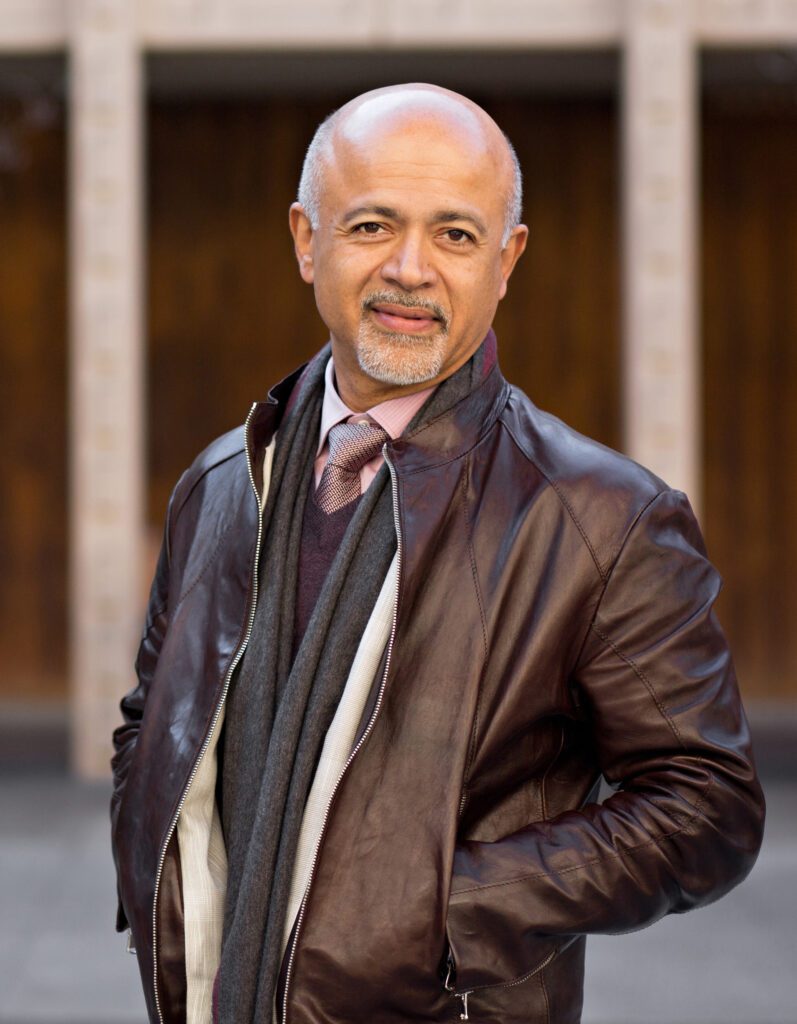
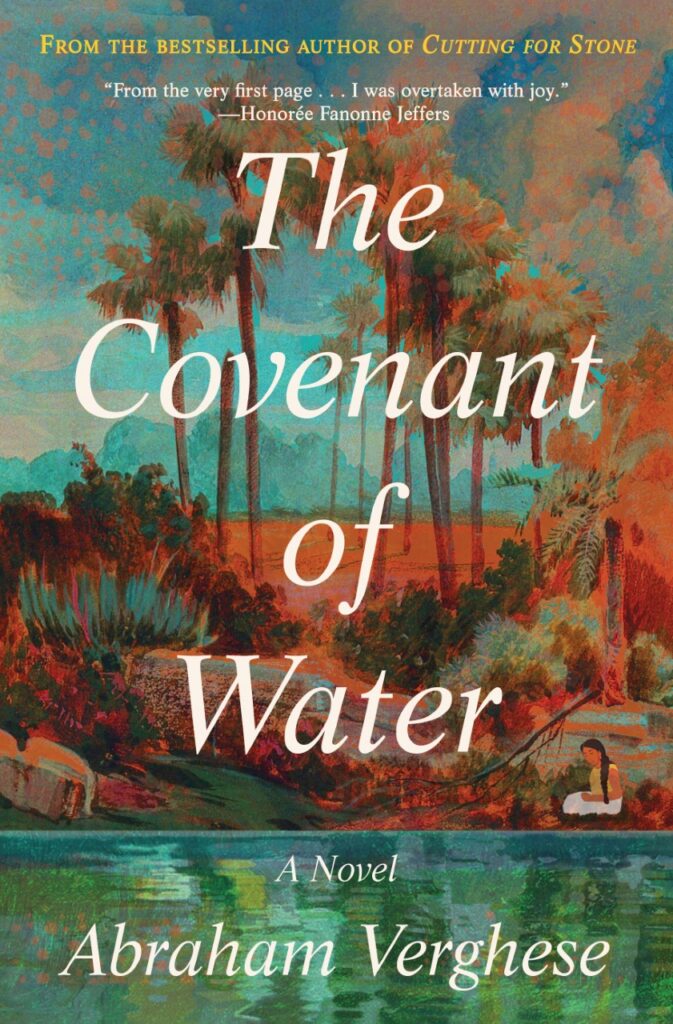
With a list of accolades as long as some novels, it’s hard to fathom where Abraham Verghese finds the time to write bestselling books. For one, his titles include MD, MACP, professor, and Linda R. Meier and Joan F. Lane Provostial Professor, and vice chair for the theory and practice of medicine at the School of Medicine at Stanford University. He is a physician known for his gentle bedside manner and care. With the introduction of technology, many physicians need to remember the gracious act of focusing on the patient versus relying on the data without engaging the patient. The noble calling of medicine is massive commitment on its own, without the writing which brought him into the spotlight, particularly his epic novel, Cutting for Stone. He received the Heinz Award in 2014 and was awarded the National Humanities Medal by President Barack Obama in 2015.
I had to know how this brilliant man straddles today’s data-driven, scientific world of medicine and the ambiguous creativity of writing with such ease. Verghese shares, “Well, that’s funny, you know. I don’t think of them as two separate professions. I know that sounds disingenuous, but the writing comes from my stance on medicine. Medicine is deeply meaningful, and it’s from that place that I begin to have the impulse to write.”
It took Verghese 10 years to write Covenant of Water, and he shares why, “This one took almost a decade, partly because it was just a long process. I’m not one of these writers who knows the whole story before they start. I know some of the story, and then I start writing, and then things reveal themselves, but, unfortunately, they often reveal themselves in the wrong direction for six months. Then I find out and, hundreds of pages later, I return to something else.”
“I often say that I write in order to understand what I’m thinking.”
“The muse of the right brain begins to speak, and it is mysterious. I had a unique experience recently. I’m recording the audiobook of my latest book, The Covenant of Water, and while doing this, I’ve begun to see connections in the book that I swear I hadn’t planned. And, you know, so it’s like your subconscious is just putting things in there that you didn’t even know. It’s mysterious.”
Verghese’s writing spoke to me on such a visceral level that I wanted to know if he practiced any faith. He shared a story about a recent church visit: “In Fremont, there is the same Saint Thomas Christian community church that I was raised in, and the service was in the Syriac language. And I had goosebumps, I tell you, because it was just all my childhood ritual. Even though I didn’t understand it; my parents didn’t. But they’re memories, and my mother had just passed away. So, it was very powerful. So, you asked me if I’m spiritual, well, faith is the absence of proof.”
I wanted to know what he learned about himself when writing, and his answer was profound.
“Every book, especially my first two nonfiction books, I thought I was writing about something I observed, whether HIV in Tennessee or the phenomenon of doctors and drug addiction. But, inevitably, I became a character in the book. Because you’ve got to turn the camera on people so intensely in a nonfiction book, when the camera wants to swing towards you, you can’t shut the reader out. You know, writing a memoir was interesting, but also painful. I was ’fessing up to things that I didn’t feel all that comfortable ’fessing up to you, but I’m not standing up on Oprah and jumping on the couch and confessing things. The reader has to do me the honor of reading my book to learn this stuff about me. With fiction, it’s much more subtle in that you’re picking a subject without you knowing why you’re picking them. Some recurring themes occur in both my fiction novels, one being abandonment. I feel like I didn’t do justice to my older two boys, and I’m still atoning for it.”
Verghese has written another novel which will debut at the Sonoma Valley Authors Festival, The Covenant of Water. We spoke about his experience writing that novel during a pandemic. Verghese explains, “I was writing it during COVID, but I was writing about the era between 1900 and 1970 in Kerala where there was a lot of pain, suffering, and illness. The book is very medical, and it just seemed to me striking how in illness and suffering, whether we live in the 21st century or back then, we reach for the same thing. We’re looking for meaning; we’re looking for faith to sustain us. And then, when we find it, when we find redemption of some sort; we know, even if it’s inadequate, we find it from the same things. We find it in our relationships, faith, and human connections. So, I’m learning all the time about humanity, about medicine, about writing, about forgiveness, and myself.”
What’s so ironic is that books inspired Verghese to become a physician. He shared his journey with me: “For me, the novels that led me to medicine were The Citadel and Of Human Bondage.”
Decades and continents later, Verghese found himself in the HIV era because of this training in infectious diseases. He was practicing medicine in the small town of Johnson City, Tennessee, where everyone said he would see one HIV patient every other year because it was an urban condition. But in a short time in that small town of 50,000, that one patient every other year increased to about 100 patients a year.
Verghese continues, “It’s crazy how quickly it became apparent that this was a tremendous American story of migration. It was a story of young men leaving their homes for jobs and education, but also because they were gay. They didn’t want to live their lives under the scrutiny of their families. So, they spent decades in the big city. Often their partners got sick first and died, and now they were coming home because they were ill. And so, there I was at the tail end of this migration. I wrote a scientific paper describing this. But even as I read the paper, it felt like the language of science didn’t capture the heartache of those families. It didn’t capture the nature of the voyage. It didn’t capture my grief. I was also getting burned out by the intensity of HIV, so rather than take a sabbatical, I applied to the Iowa Writers Workshop intending to tell this story as fiction.”
Verghese attended the workshop, and soon after, his story was published in The New Yorker. When the editors learned of his background—a foreign-born physician and a small southern town dealing with HIV—they invited him to write an outline for a long nonfiction piece. As a result, he was drawn into writing two nonfiction books, My Own Country and The Tennis Partner.
Regarding his career as a fiction writer, Verghese shares, “I always wanted to write the kind of novel that would do what those other books did for me: bring a young person to medicine with a sense of the romantic, a passionate pursuit that will satisfy the reader.”
“There is a saying that character emerges when people make decisions under pressure. In medicine, I got to see that over and over again. It is very touching and tragic sometimes.”
If you haven’t read Cutting for Stone, treat yourself to a multisensory journey where Verghese’s words transform into scents, textures, and emotions that pull you into his epic tale. Attend the Sonoma Valley Authors Festival, meet Dr. Verghese, and pick up a copy of The Covenant of Water, another spectacular saga that early reviewers have raved about in Publisher’s Weekly, Kirkus, Booklist, and which received a great mention by Ari Shapiro in The New York Times.
HUGO VICKERS
Great Britain’s Trusted Storyteller
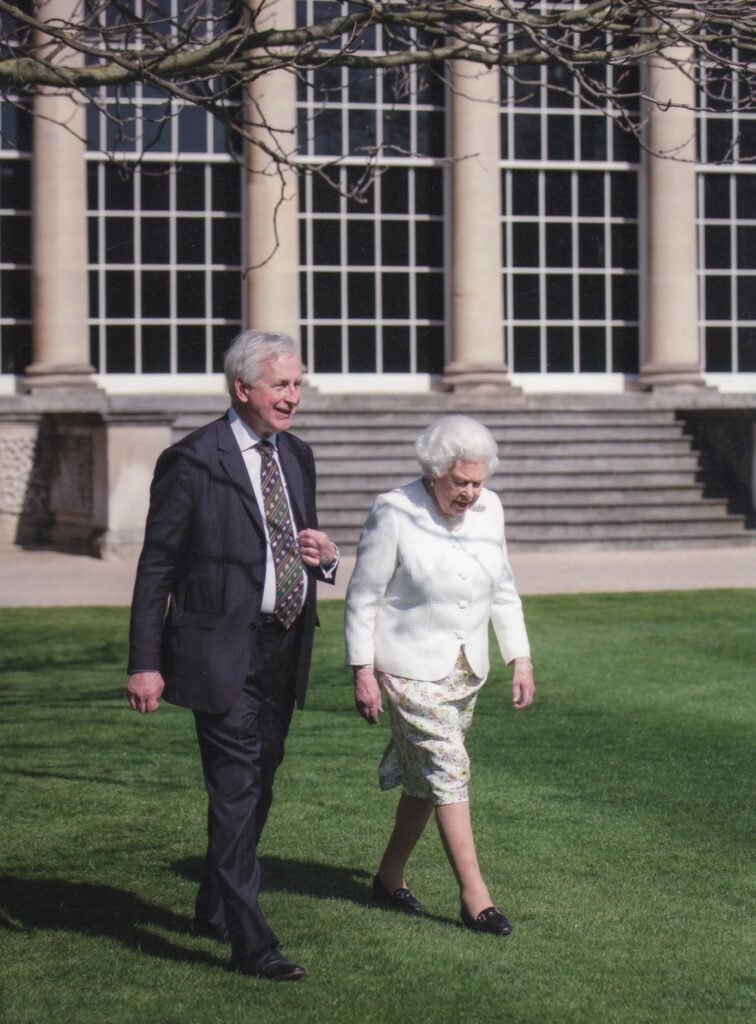
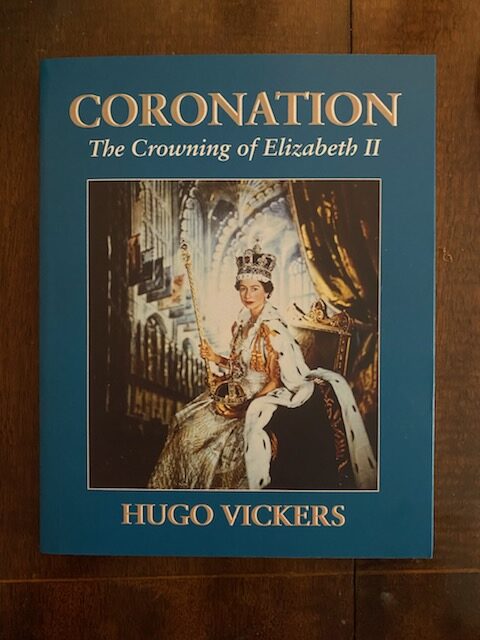
When considering Britain, the royal family, and a serious historian, it’s easy to conjure a man with a stiff upper lip and a serious demeanor. But I was pleasantly surprised by Hugo Vickers’ witty disposition and singsong one-liners. Along with his never-miss-a-beat humor, he is incredibly intelligent and passionately invested in Britain’s narrative. His career started on a fanciful whim writing about Gladys Deacon when he was 16 years old. His tenacity for interviewing, historical research, and storytelling led him to become one of Great Britain’s most respected biographers and broadcasters. His observations, as swift as a race horse’s cadence, are filled with historical relevance and intriguing facts. He has written biographies of the Queen Mother; Gladys Deacon, the Duchess of Marlborough; Cecil Beaton; Vivien Leigh; a study of Greta Garbo; and Alice, Princess Andrew of Greece. Vickers’ book, The Private World of The Duke and Duchess of Windsor, was illustrated with pictures from their collection. His book, The Kiss: The Story of an Obsession, won the 1996 Stern Silver Pen Award for non-fiction.
When speaking with Vickers, I waited anxiously for his next witty line punctuated by his delightful English accent. Some of his clever quips would make great sayings on mugs and pillows, in particular his assertion: “I am the only person you will ever meet who can earn an honest living in bed.” When asked about becoming a writer, he shares, “I don’t really believe that something’s happened until it’s been written down on a piece of paper. The real reason that I became a writer was that I wanted to tell a particular story. When I was about 16, I read about Gladys Deacon. She was married to the Duke of Marlborough and I thought she sounded fascinating. Then she seemed to have completely disappeared into smoke. I finally found her, and she was in a psycho-geriatric ward of a hospital. I went to see her and gradually made friends with her and was able to talk to her for two years. And this completely altered my life.”
Through a serendipitous chain of events that commenced with the Deacon’s unfortunate death, he got a publisher in New York. Hugo had written her obituary for the London Times. It was published and then printed on the front page of the Herald Tribune in Europe. Next, it was printed in the New York Times. Meanwhile, Vickers got a new agent. His agent sent the synopsis to an American editor who had circled the obituary in the New York Times and thought Deacon looked interesting. “Then the synopsis arrived, which seemed awfully in tune with what he wanted, so he commissioned it!” Hugo recounts with delight.
I asked him why he focused on biographies which can be challenging to write, especially when the subject is still alive. “I’m interested in people and like things to be within living memory. It’s as if I appear after the play: the curtain has dropped, and everybody’s back in the dressing room. That’s when I go and talk to them, and I try to piece it all together. You know, I’ve been very lucky. When Cecil Beaton asked me to do his biography in 1979, it was an opportunity to meet everybody extraordinary at the time, from Truman Capote and Audrey Hepburn, Julie Andrews and the Queen Mother—it was an unbelievable cast of characters.”
Vickers published his diaries about all this called Malice in Wonderland, which is about him meeting these characters. “If you had your photograph taken by Cecil Beaton, it was like going up a ladder rather than coming down the snake, you know. I mean, you could argue that people like Mick Jagger didn’t need to be photographed by Cecil Beaton, but that certainly didn’t do any harm. And so, Truman Capote in the late forties was rather adopted by Cecil Beaton and, through him, met lots of interesting people in England.”
Vickers started writing biographies before the internet, so I asked him how he got his information. “You’d go off to some foreign country to visit a library. There might be just three letters, which meant nothing. You know, you never know what you’re going to find. But in Gladys Deacon’s case, every time I picked up a stone, there seemed to be a diamond underneath it. The more I found, the more interesting it became.”
It seems an oxymoron that a writer could be close to the royals. After all, he’s a writer, and they’re … well … royalty and somewhat untouchable. But Vickers is one rare gem whom they respect and trust. So, I asked him how he got so close to the family.
“Well, it all takes time. All these things … everything goes right back to my earliest days. I was at school at Eton, just over Windsor Bridge. So, I used to come across the bridge, go to Windsor Castle, go to St. George’s Chapel, and explore every Saturday and Sunday from when I was 12 to 18 years old. I have written several royal books, and I’ve been lucky they like what I wrote. I just recently wrote a book with the Duke of Kent, the Queen’s cousin, and I managed to include interviews with eight royal family members in the book.”
Just last June, Vickers was given 15 minutes with Queen Elizabeth II. “I had met the queen about 40 times in my life. But after the Jubilee, I was worried that I wouldn’t see her again. She had come to Prince Philip’s memorial service, which I went to. I had written an introduction to a book of photographs of the queen in Windsor. It was ready on 24 June. She had been riding that morning, and her groom asked if the photographer and I could come and present her with the first copy. I was so lucky. Her radiant smile was still so evident, and you can talk about lots of things in 15 minutes. A wonderful memory.”
With the coronation of King Charles around the corner, Vickers’ dance card is filling up. When asked about his upcoming projects, he said they might include the queen’s or Prince Phillip’s biographies. “Those would be exciting to do. I know a lot about both of them, and I wrote a book about Prince Philip’s mother, Princess Alice, and worked closely with him, his sister, and his office on that project. She was a fascinating woman. She hid a Jewish family in Athens during the war. She was very extraordinary.”
He wrote a book about the coronation 10 years ago, which he has revised. It is now been republished. Regarding the coronation of King Charles, Vickers remarks, “I’m easing myself into the position of being the expert on the coronation.”
Of course, I had to ask him for advice for new writers, and he shared his sage wisdom. “If you want to do it, you have to do it, don’t you? I advise young writers to keep a diary, because then you’re turning reality into the written word each day. Just try and get anything published anywhere. Start writing reviews, put your thoughts into words, and get your written words out there.”
Hugo Vickers will be speaking at the Sonoma Valley Authors Festival, and I look forward to more of his witty prose.
DAVE BARRY
Keeping It Real Through Humor
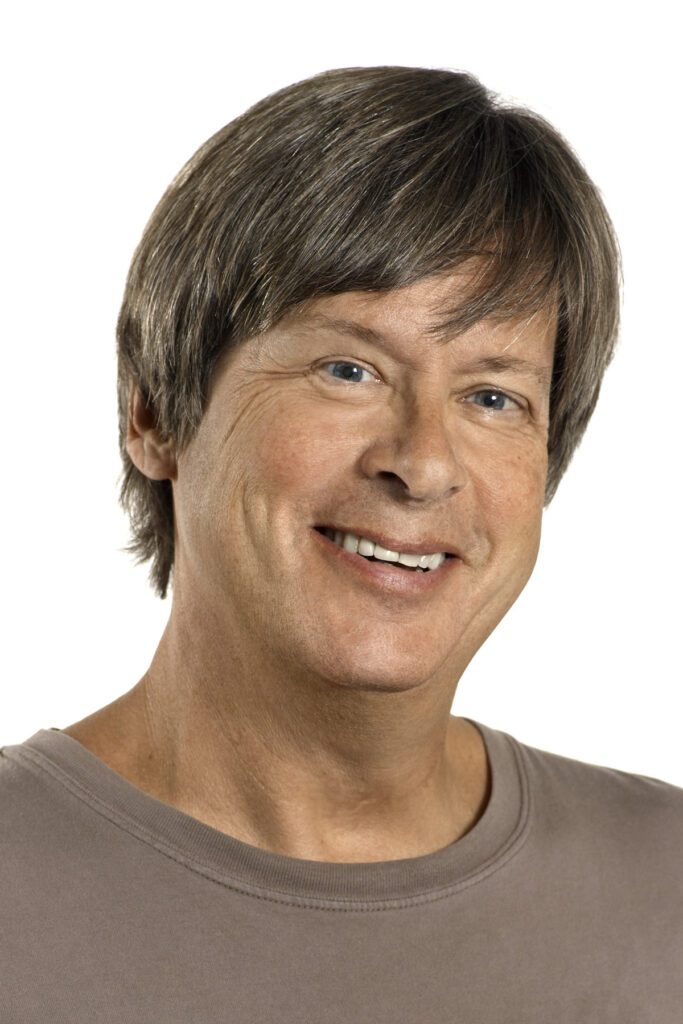
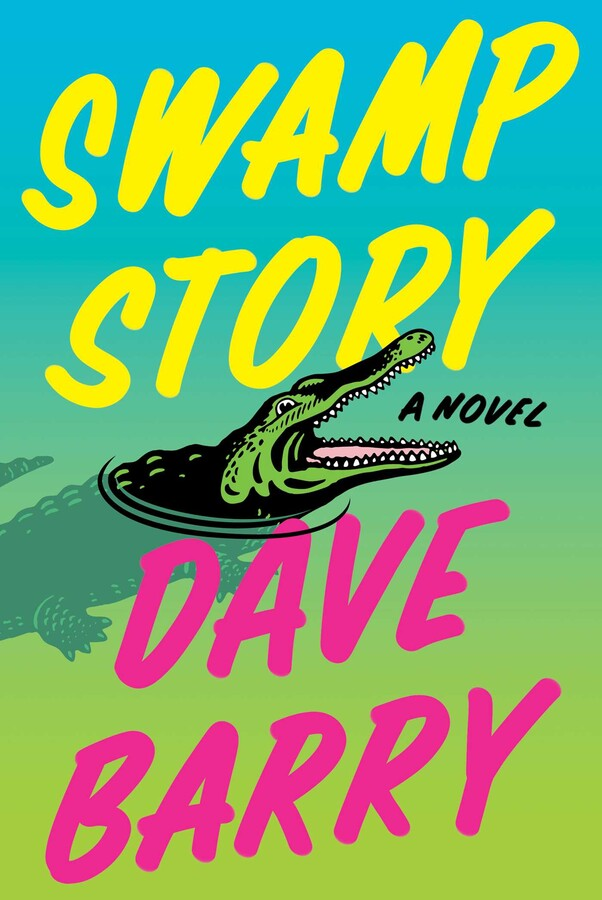
Speaking with Dave Barry puts a perpetual grin on my face. First, he is a very funny man. Second, I love his style. It is easy to feel intimidated by the world-renowned, bestselling author who has had movies made from his books and the sitcom Dave’s World based on his books, Dave Barry Turns 40 and Dave Barry’s Greatest Hits. However, his jovial demeanor is reassuring, and I relished our conversation which happened while I was rushing around Fashion Week in New York. It was nice to kick off my stilettos and laugh with him about subjects most fashion editors take too seriously. We joked about when the Miami Herald sent him on assignment to cover Fashion Week. Barry shares, “It was the easiest humor piece I’ve ever written. All I had to do was describe it!”
A master of the art of humor, Barry can find humor in the most mundane subjects. For example, his 2004 hit, Boogers Are My Beat,includes titillating topics such as the scientific search for the world’s funniest joke, RV camping in the Walmart parking lot, and elections in Florida. (“You can’t spell Florida without ‘duh.’”) While he’s known as “the funniest man in America,” Barry also has a thoughtful, intuitive side. When dealing with the challenges of getting older, Dave shares humorous anecdotes about Lucy, his dog, on how one can live their best life while aging. In addition, subjects like “Make New Friends” and “Don’t Stop Having Fun” give readers gentle advice on how to move into midlife with some fun. Unfortunately, Lucy was napping when Barry and I spoke, so I didn’t get to meet her.
This will be Barry’s third time at the Sonoma Valley Authors Festival. He says about coming to Sonoma, “My wife and I have a great time there, and we enjoyed it. It’s small enough that you get to meet everybody, and you know the readers who attend are great to meet, and you get to have meals with them. I’ve come, met other writers, and seen them talk. I enjoyed that, too. It’s just nice, small, cozy, and very intimate. It’s a smart, friendly group. Ordinarily, I don’t know that I would have made it to the April one, but I have a book coming out, so I will present my new book, Swamp Story: A Novel. Publication is May 2, and my publisher will send copies to the festival. Sonoma is beautiful, and people are so nice out there.”
Swamp Story: A Novel is set in South Florida and is his fourth adult novel. Barry clarifies, “Not to say ‘mature,’ but ‘adult.’ Children should not read it.” His books are always set in South Florida, and he tries to make the story something that could happen in South Florida. “Which really is not very limiting, because almost anything could happen. The everglades is a very unusual place with very unusual people who live out there, and all kinds of weird things happen. So, I wanted to bring the readers into that world of strange everglades phenomena. The story is built on the idea of these guys trying to invent a monster, and then there’s a love story of lost treasure and some other things that happen,” Barry adds.
Along with humor, Barry has excelled in the young adult fiction category with the series he wrote with his friend, Ridley Pearson. Barry explains, “We wrote a series of books for Disney. It’s called the Starcatcher Series. They’re prequels to Peter Pan.”
A prolific writer with over 50 books published, Barry understands the publishing world. So, I had to ask him to give our readers “Dave Barry’s 101” on becoming an author. He got serious for the first time in our conversation and spoke candidly: “I think the main thing is to be realistic. Look at what the actual job is and what the actual market is. So many people think they’ve got a book in them. They’ve never written anything in their lives. So, I’m very suspicious of somebody who gets to say, age 57, you know, and says, ‘I’d like to write a book.’ To me, that’s kind of like me saying I want to play in the symphony orchestra. I’ve never actually played an instrument. So, the main thing is, if you want to write, great, write because you want to write, you like to write, and you’re rewarded by writing. Don’t start from the assumption that you’ll get rich and famous, right? I hope you do.”
Time passed too quickly when talking with Barry, because his wit and self-effacing humor kept me laughing throughout our call. Amazingly, a man with his level of success and accomplishments could be kind, genuine, and funny. Barry will be at the Sonoma Valley Authors Festival, and you can meet the man who’s kept Americans laughing for decades.
April 28-30, 2023
Photo credits: Dave Barry at Sonoma Valley Authors Festival by Scott Chernis; Isabel Allende by Lori Barra; Abraham Verghese by Jason Henry
